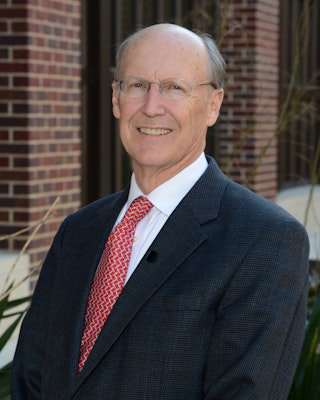Editor's Note
What compassionate conservatism means for Americans living in poverty

This edition of The Catalyst presents the second in our series on what compassionate conservatism means today. In this issue, we take a look at the hardships that poverty places on too many American households. But we don’t just study the problem. We also have sought solutions from elected officials, policy experts, community leaders, and, most importantly, Americans who have experienced poverty.
Our contributors draw upon their experiences in big metropolitan areas like Dallas and Los Angeles, as well as from their work in the rural areas of states like Louisiana and Virginia. They address some of the systems that limit the mobility of impoverished Americans, whether those deal with education, transportation, health care, housing, or criminal justice. The contributors also look at the role that individuals can play in upending the cycle of poverty, as well as how private capital and market principles can generate upward mobility.
President Bush once used the phrase “we believe in private markets humanized by compassionate government” to describe his governing philosophy, and this edition seeks to apply those principles of compassionate conservatism to these real-world problems. We don’t expect all the authors to consider themselves compassionate conservatives, nor do all the answers reflect the beliefs of the George W. Bush Institute. But we have asked them to draw upon their expertise and experiences as we seek to shine a light on inequalities that keep Americans from realizing their full potential. Their solutions draw as much from the drivers of civil society – non-profits, community institutions, and individual action – as they do from the role of a compassionate government.
Among others, you will hear from:
Tim Scott, a U.S. senator from South Carolina;
- Mike Rawlings, the mayor of Dallas;
- Father Gregory Boyle, founder of the Homeboy Industries gang-intervention program in Los Angeles;
- Julie Hersh, author of Struck by Living: From Depression to Hope;
- Ana Lopez Van Balen and Dr. Quyen Chu, graduates of the Presidential Leadership Scholars program: and
- Anne Wicks, Cullum Clark, Enisha Williams, and Natalie Gonnella-Platts, policy experts at the Bush Institute.
We also offer our first reader quiz, which is based upon actual scenarios people in poverty face. (We hope you take time to think through the choices many people face each day and take action.) We present the work of an art studio that serves Dallas residents who are homeless or at-risk of being homeless (full disclosure: the studio is part of a ministry my church operates). And we have asked policy experts and community leaders to describe the greatest barrier to escaping poverty and their recommendations for overcoming those barriers.
We don’t suggest to have all the answers, but we are committed to addressing the nation’s most persistent problems. Please let us know your thoughts, just as you did in responding to our fall edition, which was the first in our series on what compassionate conservatism means today and focused on expanding America’s middle class.
Letters to the Editor: Your Response to the Fall 2018 Opportunity Road Catalyst
Re: President George W. Bush on Compassionate Conservatism
Really enjoyed this conversation with our 43rd president. I will be spreading his “compassionate conservatism.”
-William Paul,
Phenix City, Alabama
Re: Admiral James Winnefeld’s Opioid Abuse Is Devastating Families – and America’s Middle Class
I very much appreciated this edition. I commend Admiral Winnefeld and his family in their efforts to address the opioid problem. I, too, lost my wonderful son to an accidental opioid overdose. I wake up to the constant background noise of sadness, too.
-Holly Morris,
Gainesville, Florida
Re: Cullum Clark’s The Benefits of Homeownership Mean We Should Still Believe in the American Dream
Because of high property taxes and insurance rates, you really never “own” your house. When the mortgage is paid off, the taxes and insurance can be hundreds of dollars a month. For seniors wanting to retire, this is an awful burden that should not be.
-John Edmonds
Shreveport, Louisiana
Re: Anne Wicks’ Spring 2018 Lifelong Learning Is the Way to Overcome Disruptive Forces
I completely agree with the concept of students becoming life-long learners. We must expose our students to such practices. In doing this we can create a society of lifelong thinkers. In the industrial age, students were taught to “obey” and just perform. Today, education must consist of abstract thinkers and doers.
-Alexandria Smith
Dallas, Texas
The Catalyst believes that ideas matter. We aim to stimulate debate on the most important issues of the day, featuring a range of arguments that are constructive, high-minded, and share our core values of freedom, opportunity, accountability, and compassion. To that end, we seek out ideas that may challenge us, and the authors’ views presented here are their own; The Catalyst does not endorse any particular policy, politician, or party.

